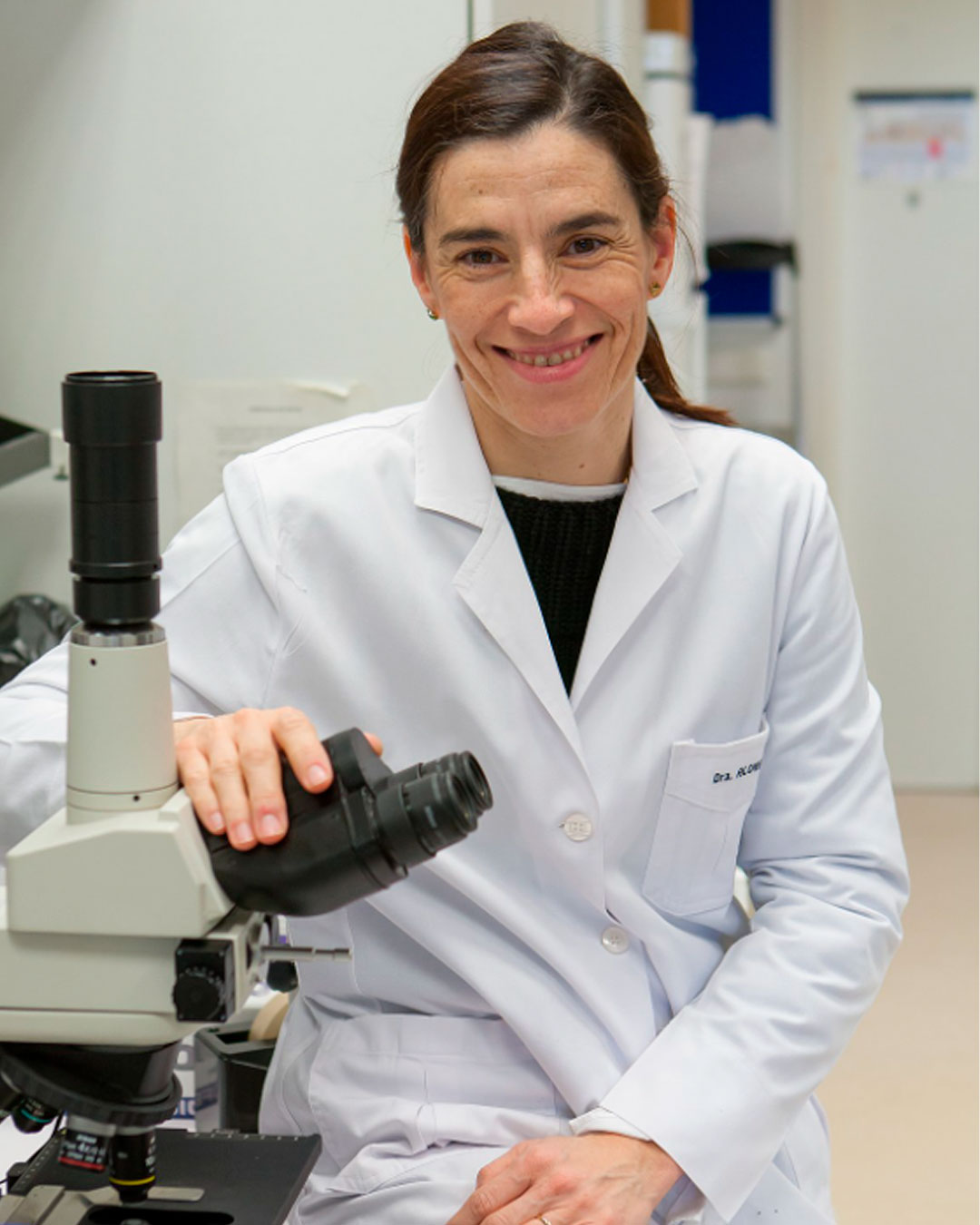Biological Sciences
Biology graduates have the possibility to choose from a wide range of professional careers. This means that the job opportunities are very varied depending on the field in which the students want to specialize.
Our Student Testimonials




Labor Field Where do Biologists work?
Some of the best organizations where biologists can work
- National Geographic
- Instituto Broad
- Probiomed
- Base Delgrado
- Grupo Argos
- Wellcome Sanger Institute
- ICAPO
- UNESCO
- ABYTEK BIOPHARMA
- PFIZER
Aspire, Dream, Realize Some of the 21st century top biology specialists


Marta Alonso
Spanish researcher, who specializes in pediatric oncology
Mainly dedicated to the study of new biological therapies for brain tumors at the Center for Applied Medical Research (CIMA), Spain.


Elena Ramirez Parra
Senior Scientist CSIC
Scientist from Spain who specializes in the field of agronomy, specifically in the negative effects produced by environmental stress.


Ángeles Alvariño
Forerunner in world oceanographic research
First female scientist on a British oceanographic vessel, the Sarsia.


Peter Beyer
Vice-Director of the Centre for Applied Biosciences
He is known as co-inventor of Golden Rice and professor for Cell Biology at the Faculty of Biology
Learning Outcomes
Upon completion of the biology degree, the graduate of Arkansas State University Querétaro will be able to:
1. Identify biodiversity because of evolutionary and adaptive mechanisms, recognizing the underlying genetic principles and mechanisms.
2. Distinguish biological mechanisms and relate/apply these mechanisms to biological systems and their functioning.
3. Find solutions to help in the care and protection of wildlife.
4. Build hypotheses and design experiments to validate those hypotheses.
5. Demonstrate the creative and critical thinking skills necessary to evaluate scientific information and/or ideas.
6. Formulate innovative strategies and solve problems.
7. Communicate effectively in social, academic, and professional contexts using a variety of mechanisms, including written, oral, numerical/quantitative, graphic, and/or visual media, appropriate to the topic, audience, and discipline.
8. Understand the impact and consequences of their actions on themselves and others, as well as their roles as citizens of a free and democratic society.
9. Live and work effectively with others and conduct yourself as a committed member of a global and diverse society.
Degree Plan
General Education First Year Experience – Making Connections
- Making Connections – Biology
- Composition I
- Composition II
- Oral Communication
- College Algebra or Higher Math
- Biology of the Cell
- Biology of the Cell Laboratory
- General Chemistry I Laboratory
- General Chemistry I
- U.S History or U.S Government Elective
- Social Science Elective I
- Social Science Elective II
- Fine Arts Elective
- Humanities Elective
Biology Sciences Core
- Biology of Animals Laboratory
- Biology of Animals
- Biology of Plants Laboratory
- Biology of Plants
- Genetics Laboratory
- Genetics
- Principles of Ecology
- Biological Seminar
- General Chemistry II Laboratory
- General Chemistry II
- Organic Chemistry I Laboratory
- Organic Chemistry I
- Organic Chemistry II Laboratory
- Organic Chemistry II
- Survey of Calculus
- General Physics I
- General Physics II
Foreign Language Requirement
Students in this major must demonstrate basic proficiency in a foreign language. This may be done by one of these situations:
- Completing two years of a single foreign language course in high school.
- Completing the second semester of an intermediate foreign language course at a college level. Students with previous language experience must consult with an advisor for course placement. Students must complete intermediate Language II.
- Passing an examination acceptable to the foreign language faculty as proof of proficiency equivalent to successful completion of the second semester of the intermediate year of a foreign language at a college level.
2 possible emphasis areas: Emphasis in Evolution, Ecology and Organismal Biology OR Emphasis in Preprofessional Studies
Emphasis in Evolution, Ecology and Organismal Biology
- Comparative Animal Physiology + Lab OR Plant Physiology
- Microorganisms and Microscopy elective (for example: Microbiology)
- Applied Statistics I
- Cell and molecular biology elective (for example: Cell biology + Lab OR Molecular Biology)
- Taxon focused elective (for example: General Entomology + Lab, Invertebrate Zoology + Lab, Mammalogy, etc.)
- 14-18 credits of upper level biology electives (approximately 5 or 6 advanced courses with the prefixes BIO 3000 or BIO 4000, such as Animal Ecology + Lab, Wildlife Management, Conservation, etc.)
- 9 credits of electives (approximately 3 hours of additional courses such as: Comparative Vertebrate Anatomy, Animal Histology + Lab, etc.)
Emphasis in Preprofessional Studies
- Comparative Vertebrate Anatomy
- Comparative Animal Physiology + Lab
- Microbiology
- Cell biology + Lab OR Biochemistry
- Select three of the following:
- Virology
- Cell signaling
- Cell biology + Lab
- Pharmacology
- Human Genetics
- Animal Histology + Lab
- Biochemistry
- Applied Statistics
- 11-15 credits electives (approximately 5 courses such as Immunology, Biosafety and Ethics in Research, Special Topics in Cancer Biology, Laboratory in Biotechniques I and II, etc.)


